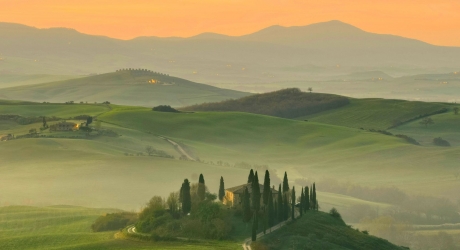Nature is a storehouse of learning for those who wish to learn. If we do not take it for granted and learn to look at it consciously as our teacher we will benefit tremendously from the silent language that it speaks.
What does a tree’s eloquent silence tell us? It conveys to us that after autumn, there is spring. The tree creates no noise, no problems, and no unwanted situations. It gives shade, a pleasant sight, oxygen, beautiful flowers and fruits. It provides a place for birds which adds to the beauty of the world. The tree is a message to man to adopt the same culture and to become a fitting ornament of the garden of the universe.
What does a river convey? In the river, fresh water is being added to the existing water at every moment. This everyday phenomenon is responsible for the freshness of the river water. In the absence of this continuous flow of newly-added water, the river will lose its freshness; it will not be able to maintain its health-giving, nay lifegiving properties. Man should adopt the same culture in terms of adding knowledge and wisdom at every moment of his life. This will prevent him from continuing to follow the wrong ways generation after generation which are obstacles to development and progress.
If we learn to look at nature consciously as a teacher, we will benefit tremendously from the silent language that it speaks.
Ants coming up on a heap of sugar and a heap of salt would take the sugar and ignore the salt. For the human who observes this, the silent message is to ignore what is undesirable and adopt what is desirable. It is the honeybee’s culture to fly out from its hive every day and reach places where flowers are available for it. It extracts nectar from the flower and returns to its abode. It pays no heed to anything else. Where there are flowers, there are also thorns; but the honeybee does not waste its time by complaining about the thorns. It simply concentrates on the flower and extracts what it wants.
The symbolic lesson for man from this is, “Live like a honeybee”. Extract what is good for you and leave what is unwanted. Do not waste your time in complaints and protests.
We have to develop in our personality what may be called the capacity for conversion; and who could be a better example of it than a cow.
Man feeds grass to the cows and the cows convert it into milk returning it to man. Similarly, man should develop this culture of conversion— converting anger into forgiveness, problems into challenges, feeling of deprivation into a feeling of motivation, and the list can be endless.
When there is a severe storm, large birds with strong wings fly upwards and save themselves from becoming victims of the storm. On the basis of this behaviour of the birds there is a common phrase, ‘big birds of the storm’. During negative situations, the behaviour of high thinking people will be akin to the behaviour of the ‘big birds of the storm’. They are those who will fly high above the situation and remain positive. They will stay peaceful and think of creative ideas to tackle their challenges.
Convert your anger into forgiveness, problems into challenges, deprivation into motivation, feeling of not being born with a ‘silver spoon’ into the feeling of being born with an ‘incentive spoon’.
While we understand that there is a lot of learning that can be acquired from observing nature, we also need to understand that the behaviour of nature is by instinct, but man has to consciously, and of his own free will adopt these lessons. What is there to stop him from doing so? He is richly endowed with intelligence and power of reasoning. Value these gifts bestowed by God and make use of them fully.









